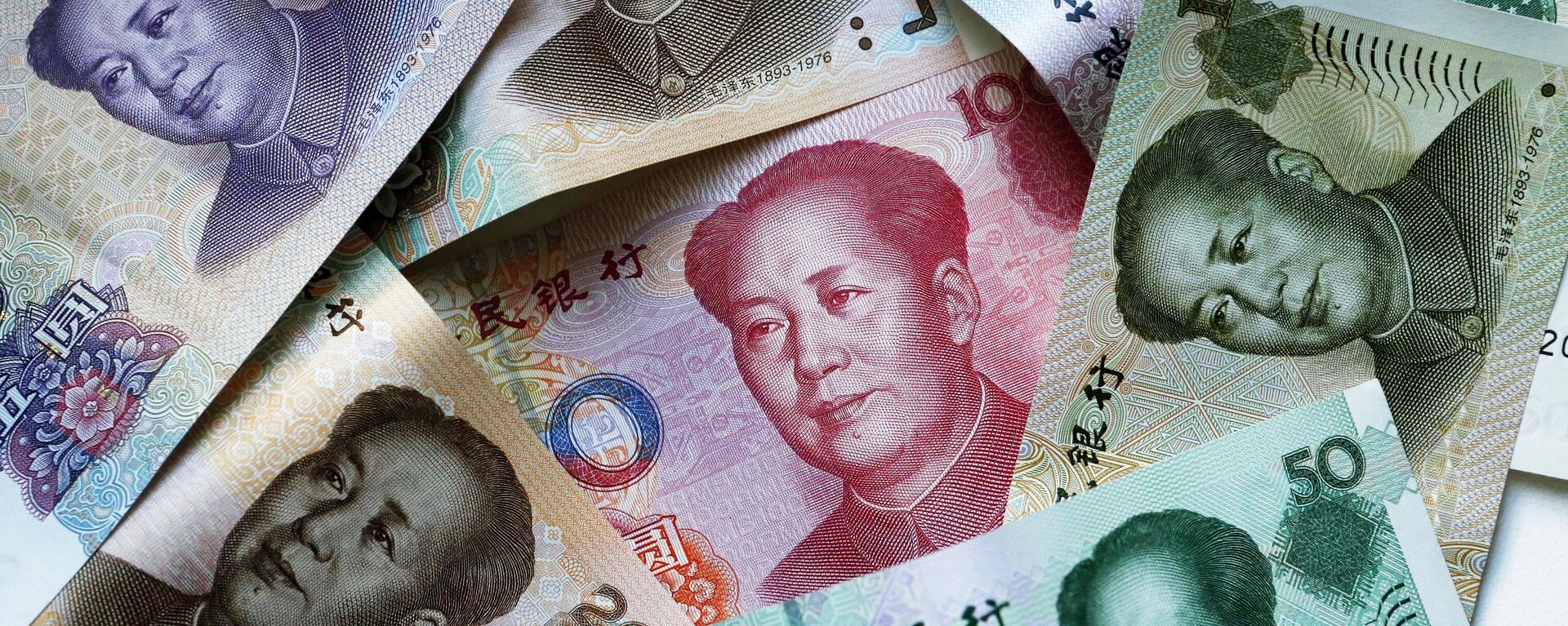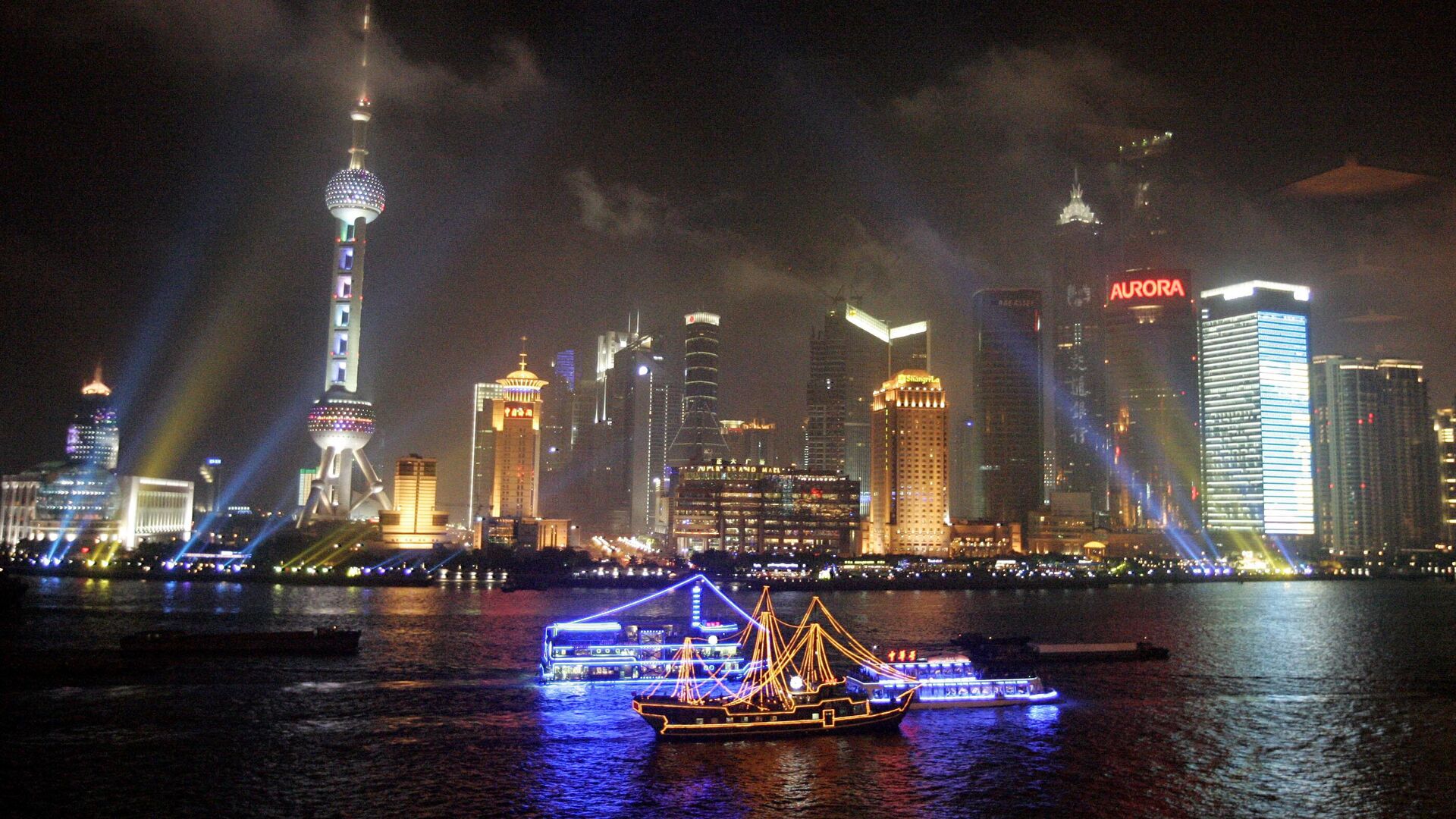https://sputnikglobe.com/20240318/chinas-infrastructure-triumphs-prove-west-has-much-to-learn-from-beijing-1117395791.html
China’s Infrastructure Triumphs Prove West Has Much to Learn From Beijing
China’s Infrastructure Triumphs Prove West Has Much to Learn From Beijing
Sputnik International
China’s engineering achievements are the envy of the world. But will Cold War thinking prevent reconciliation between East and West?
2024-03-18T04:29+0000
2024-03-18T04:29+0000
2024-03-18T04:29+0000
analysis
china
western capitalism
chinese economy
multipolar world
unipolar world order
cold war
https://cdn1.img.sputnikglobe.com/img/07e8/03/12/1117395998_0:303:2800:1878_1920x0_80_0_0_d39baec276ab10f0b87fef6b948bd5b5.jpg
CNN called it “China’s metro system in the middle of nowhere”: a gleaming, modern subway entrance surrounded by barren fields outside the city of Chongqing. The US media outlet compared the scene to “a post-apocalyptic future.” The station is part of a larger scheme, the cable news giant noted, anticipating growth in a rapidly modernizing country, but the author seemed skeptical.Seven years later, commuters bustle in and out of the subterranean portal surrounded by a modern concrete plaza and towering apartment buildings. Caojiawan Station is a testament to China’s impressive ability to plan and execute large-scale infrastructure and urban development projects.Hundreds of miles south China is putting the finishing touches on a high-speed rail project. The Guangzhou-Zhanjiang line is one of many that links cities across the country’s vast terrain with modern, rapid transportation. A new undersea tunnel beneath Zhanjiang Bay has just set a record as the country’s longest.The achievement provides a stark contrast to rail transport in the United States. Although the US and China are comparable in size and geography, America has struggled to build rail lines that even approach the speed and modernity of those that exist throughout the world. A project in California, considered perhaps the country’s best prospect of achieving anything analogous, has been bogged down by repeated delays, endless reviews and massive cost overruns.The debacle doesn’t suggest a country whose best days are ahead of it.How does Beijing excel in infrastructure where others flounder? Chinese newspaper the Global Times attributes the country’s achievements to a few key factors.One, China possesses a great diversity of homegrown manufacturing capabilities. “Globally speaking, China is the only country in the world obtaining all the industrial categories listed in the United Nations industrial classification,” the Global Times notes. China produces everything it needs domestically, without relying on imports of technology or expertise from beyond its borders.Secondly, China has a greater appetite for long-term investment. While some private US companies have proposed luxury rail lines that hope to quickly recoup investment by marketing service to business passengers, investors in China are willing to fund projects that may require long periods of time to generate returns.The reason for this can be attributed to a third factor, perhaps the most important: China has much greater flexibility in financing because of its unique public institutions. In the US, a powerful finance capital class funnels profits to a select few Wall Street interests. America’s banks hold enormous influence over its political system, providing the funds and incentives that ensure the election of allied lawmakers and trillion-dollar bailouts when needed.One might struggle to imagine the prospect of Citigroup, Goldman Sachs, or Chase Bank being nationalized. In China they have done just that. Beijing’s largest banks exist to serve the public, funding massive infrastructure and development projects for the greater good. The results speak for themselves.Behind it all is a degree of state planning and coordination simply not possible in other countries. China’s economic and political system is able to act with an impressive singularity of purpose, uniting resources toward the country’s development.A common refrain in the West is that China only began to thrive after it embraced Western-style capitalism. But one only need look next door to India, a country of comparable size and population with a similar history of colonial exploitation, to appreciate that China is unique in its results.China’s rise has seen it transformed from one of the poorest countries on the planet to a force able to challenge the United States in a single lifetime. As a new Cold War emerges between these two global powers, the world is presented with two competing models.Western observers will immediately reject aspects of China’s approach to speech, governance, and individual rights. Every country develops along its own path. And the West may, indeed, be able to embrace certain facets of Beijing’s model over others.Doing so will require a rejection of binary thinking and Cold War hostility. The world has much to learn from China’s achievements. But doing so will require tolerance, humility, and good will.
https://sputnikglobe.com/20240225/whos-laughing-now-chinas-shrewd-planning-paved-way-for-manufacturing-dominance-1116981963.html
https://sputnikglobe.com/20240117/chinas-gdp-at-end-of-2023-up-52-yy---national-bureau-of-statistics-1116213054.html
https://sputnikglobe.com/20230913/us-economic-war-on-russia-and-china-africas-revolt-against-neocolonialism-1113339533.html
china
Sputnik International
feedback@sputniknews.com
+74956456601
MIA „Rossiya Segodnya“
2024
John Miles
https://cdn1.img.sputnikglobe.com/img/07e8/01/19/1116388787_0:0:1316:1316_100x100_80_0_0_77e70d36afd983012b1c5d38ddb84156.jpg
John Miles
https://cdn1.img.sputnikglobe.com/img/07e8/01/19/1116388787_0:0:1316:1316_100x100_80_0_0_77e70d36afd983012b1c5d38ddb84156.jpg
News
en_EN
Sputnik International
feedback@sputniknews.com
+74956456601
MIA „Rossiya Segodnya“
Sputnik International
feedback@sputniknews.com
+74956456601
MIA „Rossiya Segodnya“
John Miles
https://cdn1.img.sputnikglobe.com/img/07e8/01/19/1116388787_0:0:1316:1316_100x100_80_0_0_77e70d36afd983012b1c5d38ddb84156.jpg
cold war, chinese economy, chinese economic wonder, chinese power, chinese development, developing china, unipolar world, multipolar world, russia-china cooperation, sinophobia, anti-chinese sentiment, anti-chinese bias, chinese communism, chinese socialism
cold war, chinese economy, chinese economic wonder, chinese power, chinese development, developing china, unipolar world, multipolar world, russia-china cooperation, sinophobia, anti-chinese sentiment, anti-chinese bias, chinese communism, chinese socialism
China’s Infrastructure Triumphs Prove West Has Much to Learn From Beijing
China’s engineering achievements are the envy of the world. But will Cold War thinking prevent reconciliation between East and West?
CNN called it “China’s metro system in the middle of nowhere”: a gleaming, modern subway entrance surrounded by barren fields outside the city of Chongqing. The US media outlet
compared the scene to “a post-apocalyptic future.” The station is part of a larger scheme, the cable news giant noted, anticipating growth in a rapidly modernizing country, but the author seemed skeptical.
Seven years later, commuters
bustle in and out of the subterranean portal surrounded by a modern concrete plaza and towering apartment buildings. Caojiawan Station is a testament to China’s impressive ability to plan and execute large-scale infrastructure and urban development projects.
Hundreds of miles south China is putting the finishing
touches on a high-speed rail project. The Guangzhou-Zhanjiang line is one of many that links cities across the country’s vast terrain with modern, rapid transportation. A new undersea tunnel beneath Zhanjiang Bay has just set a record as the country’s longest.

25 February 2024, 23:06 GMT
The achievement provides a stark contrast to rail transport in the United States. Although the US and China are comparable in size and geography, America has struggled to build rail lines that even approach the speed and modernity of those that exist throughout the world. A
project in California, considered perhaps the country’s best prospect of achieving anything analogous, has been bogged down by repeated delays, endless reviews and massive cost overruns.
The debacle doesn’t suggest a country whose best days are ahead of it.
How does Beijing excel in infrastructure where others flounder? Chinese newspaper the Global Times
attributes the country’s achievements to a few key factors.
One, China possesses a great diversity of homegrown manufacturing capabilities. “Globally speaking, China is the only country in the world obtaining all the industrial categories listed in the United Nations industrial classification,” the Global Times notes. China produces everything it needs domestically, without relying on imports of technology or expertise from beyond its borders.
Secondly, China has a greater appetite for long-term investment. While some private US companies have proposed luxury rail lines that hope to quickly recoup investment by marketing service to business passengers, investors in China are willing to fund projects that may require long periods of time to generate returns.

17 January 2024, 02:37 GMT
The reason for this can be attributed to a third factor, perhaps the most important: China has much greater flexibility in financing because of its unique public institutions. In the US, a powerful finance capital class funnels profits to a select few Wall Street interests. America’s banks hold enormous influence over its political system, providing the funds and incentives that ensure the election of allied lawmakers and trillion-dollar bailouts when needed.
One might struggle to imagine the prospect of Citigroup, Goldman Sachs, or Chase Bank being nationalized. In China they have done just that. Beijing’s largest banks exist to serve the public, funding massive infrastructure and development projects for the greater good. The results speak for themselves.
Behind it all is a degree of state planning and coordination simply not possible in other countries. China’s economic and political system is able to act with an impressive singularity of purpose, uniting resources toward the country’s development.
A common refrain in the West is that China only began to thrive after it embraced Western-style capitalism. But one only need look next door to India, a country of comparable size and population with a similar history of colonial exploitation, to appreciate that China is unique in its results.

13 September 2023, 14:15 GMT
China’s rise has seen it transformed from one of the poorest countries on the planet to a force able to challenge the United States in a single lifetime. As a new Cold War emerges between these two global powers, the world is presented with two competing models.
Western observers will immediately reject aspects of China’s approach to speech, governance, and individual rights. Every country develops along its own path. And the West may, indeed, be able to embrace certain facets of Beijing’s model over others.
Doing so will require a rejection of binary thinking and Cold War hostility. The world has much to learn from China’s achievements. But doing so will require tolerance, humility, and good will.






